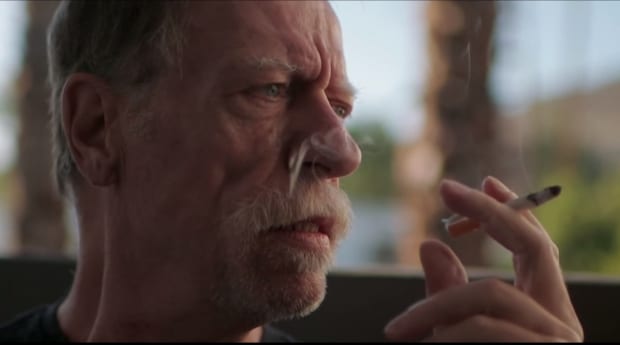“In the beginning, these men came to Palm Springs to die. Now, as circumstances have evolved, they have formed a community very much focused on living,” says Daniel Cardone, the director of Desert Migration, a documentary on long-term HIV/AIDS survivors who have formed a unique community in California.
Out On Screen and the McLaren Housing Society will co-present the Canadian premiere of the film on Dec 1, 2015, for World AIDS Day in Vancouver.
Even as the men in the film celebrate their resiliency, they also confront new challenges related to aging with scarred psyches and a condition that still carries stigma.
“I don’t think that gay men have ever been permitted the opportunity to confront the full horror of the AIDS era in those early years,” Cardone says. “For those in that time, it was a holocaust. The waves of death created a wall of collective grief that was never addressed at the time, and that still hasn’t been resolved.”
“As the survivors begin to age — something that was never even an option before newer drugs in 1996 — they have begun to formulate their own unique communities that allow them to grieve while documenting their histories,” he continues.
“They really have come from everywhere to share in this particular community. The men in Desert Migration have their own stories, but they all share the fact that they came here to find an environment that allowed them to heal, and a community that was accepting.”
(This trailer for Desert Migration shows the chosen community of HIV-positive gay men that has emerged in Palm Springs.)
Desert Migration’s producer, Marc Smolowitz, says the film is both a celebration of community and a universal look at aging.
“In our film, Palm Springs is a kind of microcosm for places that exist everywhere that are dealing with aging,” he says. “We explore the deeper human condition as it relates to a whole slate of issues that are paramount to what it means to age — employment, retirement, dating, sex, friendship, financial security, health and the ways in which all people create families of their own choosing.”
As they reflect on World AIDS Day, both Smolowitz and Cardone, who have collaborated on previous mixed-media projects thematically inspired by HIV/AIDS, hope audiences will value the lessons in Desert Migration’s celebration of a community that has been shaped by adversity.
“World AIDS Day is the most important date on the annual AIDS Calendar. For us, it is tremendously important that our film about gay men who are long-term survivors living with HIV screen on this day,” Smolowitz says.
“It’s a chance for communities to unite, and reflect and heal from over 30 years of trauma. For my part, I am delighted that this piece offers a meaningful space for people to do that in Vancouver, and in many other cities worldwide,” he says.
“We also trust in the intelligence of the audiences for this film”, Cardone adds. “Younger people inclined to seek out this story, in particular, understand that the social history of HIV/AIDS is still very much their story. As a focal point for this body of collective history and grief, and to prevent future tragedies, World AIDS Day still matters.”
McLaren Housing hopes this understanding resonates locally. “Desert Migration is about resilience,” says executive director Kim Stacey.
“The film demonstrates how HIV affects each person differently, and explores its long-term impacts, which are not necessarily physical,” she says. “Even though HIV-positive folks come from a cross-section of society, commonalities exist: loneliness, depression and an inability to create relationships that counter loss, among many others.”
For Stacey, recognizing World AIDS Day still holds resonance in a supposedly ‘post-AIDS’ era.
“It’s an opportunity for people worldwide to unite against HIV, support those living with the virus, and commemorate those who have died,” she says.
“It allows organizations like McLaren to further awareness that people living with HIV face many challenges associated with living with a long-term episodic health issue,” she continues. “No one should live with this disease and feel that they are alone.”
Desert Migration
Tuesday, Dec 1, 2015
Vancity Theatre, 1181 Seymour St, Vancouver
Doors open at 6:30pm, screening at 7pm. A discussion panel will follow the presentation.
Tickets $10
mclarenhousing.com

 Why you can trust Xtra
Why you can trust Xtra


